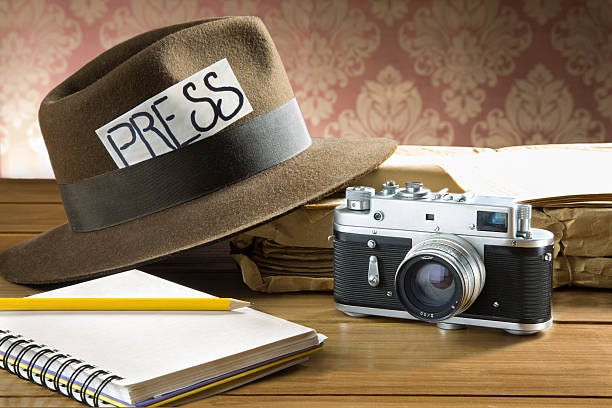Define "journalist"
It's harder than you think!
Just before Thanksgiving, I did a piece in which I asked a simple but — I think —profound question: Who, exactly, qualifies as a journalist these days?
Is it Joe Scarborough? Joe Rogan? Me?
As I noted in the piece, it’s harder than it’s ever been in my lifetime to define “journalist” and “journalism.” And I asked you all — the “So What” community — to he…



